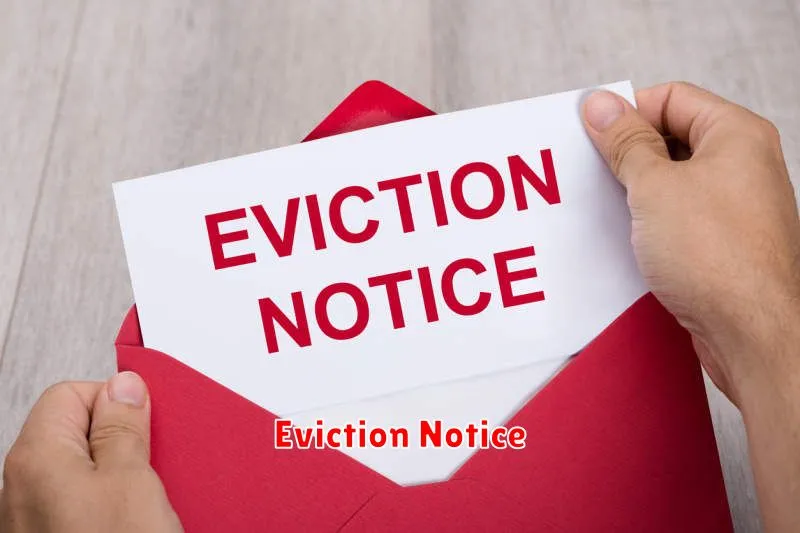Being evicted from your apartment can be a stressful and overwhelming experience. It can leave you feeling lost, unsure of where to turn, and worried about your future. But, it’s important to remember that you’re not alone. Many people experience eviction at some point in their lives, and there are resources available to help you navigate this difficult situation. This article will provide you with practical steps on what to do if you get evicted from your apartment, helping you understand your rights and options so you can move forward with confidence. We’ll cover essential topics like understanding eviction laws, finding alternative housing, and protecting your belongings. By understanding your options and taking proactive steps, you can minimize the impact of eviction and regain control of your living situation.
Understanding the Eviction Process and Your Rights
Being evicted from your apartment can be a stressful and overwhelming experience. It is important to understand the legal eviction process and your rights as a tenant. In most cases, the landlord must go through specific legal steps before they can legally remove you from your apartment. This typically involves serving you with a notice to vacate, providing you with an opportunity to dispute the eviction, and going through a court hearing.
Landlord’s Obligations: Landlords are legally obligated to follow specific procedures when evicting a tenant. They must typically provide a written notice of the eviction, usually called a “Notice to Vacate.” This notice must include the reason for the eviction and the date by which you must vacate the premises. Landlords are also required to provide you with the opportunity to present your side of the story in court.
Your Rights as a Tenant: As a tenant, you have the right to be treated fairly and to have your rights protected during the eviction process. You have the right to a court hearing to challenge the eviction. You should also understand that eviction can only be pursued for specific legal reasons such as non-payment of rent, violation of the lease agreement, or engaging in illegal activities on the property. If you believe the eviction is unjustified or the landlord is not following the proper legal procedures, you should seek legal advice immediately.
Seeking Help: If you’re facing eviction, it’s crucial to seek help from a legal aid organization or an experienced attorney specializing in tenant-landlord law. They can guide you through the eviction process, advise you on your rights and responsibilities, and help you navigate any legal proceedings.
Reviewing Your Lease Agreement for Potential Violations
If you’ve been served with an eviction notice, it’s crucial to carefully review your lease agreement to identify any potential violations on the landlord’s part. Landlords must adhere to the terms of the lease, and any breaches could give you grounds to fight the eviction.
Look for clauses regarding:
- Notice requirements: Check if the landlord provided you with the necessary written notice before initiating eviction proceedings, as outlined in your lease and local laws.
- Grounds for eviction: Verify whether the reason cited in the eviction notice aligns with legitimate grounds for eviction as stipulated in your lease agreement and local laws.
- Lease violations: Scrutinize whether the landlord has violated any terms of the lease, which could potentially invalidate their right to evict you.
Keep in mind that local laws may have additional protections for tenants, so it’s essential to familiarize yourself with your local tenant laws. If you find any discrepancies or violations, gather any relevant evidence, such as copies of notices, communications, or photographs, as this will strengthen your case.
Communicating with Your Landlord to Seek Resolution
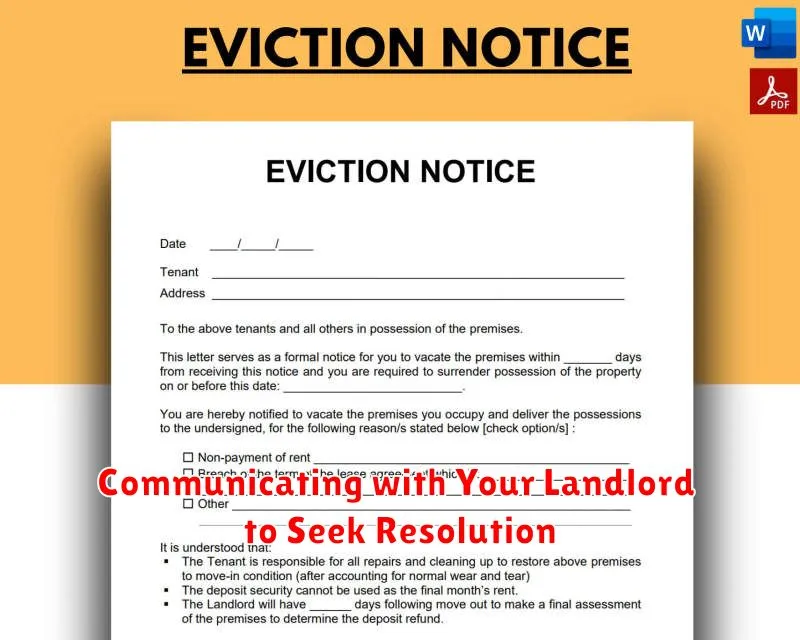
If you’ve been served with an eviction notice, it’s crucial to take immediate action and communicate with your landlord. This can help prevent further escalation and potentially find a resolution.
The first step is to understand the reason for the eviction. Read the notice carefully and note the specific grounds for eviction. This could include non-payment of rent, violation of lease terms, or damage to the property.
Once you understand the reason, reach out to your landlord in writing. Explain your situation and express your willingness to resolve the issue. If you’re facing financial difficulties, provide evidence and explore potential solutions like a payment plan or temporary rent reduction. If you’ve violated the lease agreement, acknowledge your mistake and propose a solution to rectify it.
Keep all communication professional and respectful. Avoid becoming confrontational or aggressive, even if you feel frustrated. This will help ensure that your landlord is more willing to work with you.
Document all communication, including dates, times, and content. This documentation will be valuable if you need to present your side of the story to a court or a mediator.
Even if you’re unable to resolve the situation entirely, open communication with your landlord can make a difference. It demonstrates your willingness to work toward a solution and might lead to a more positive outcome.
Seeking Legal Counsel from a Tenant Rights Organization
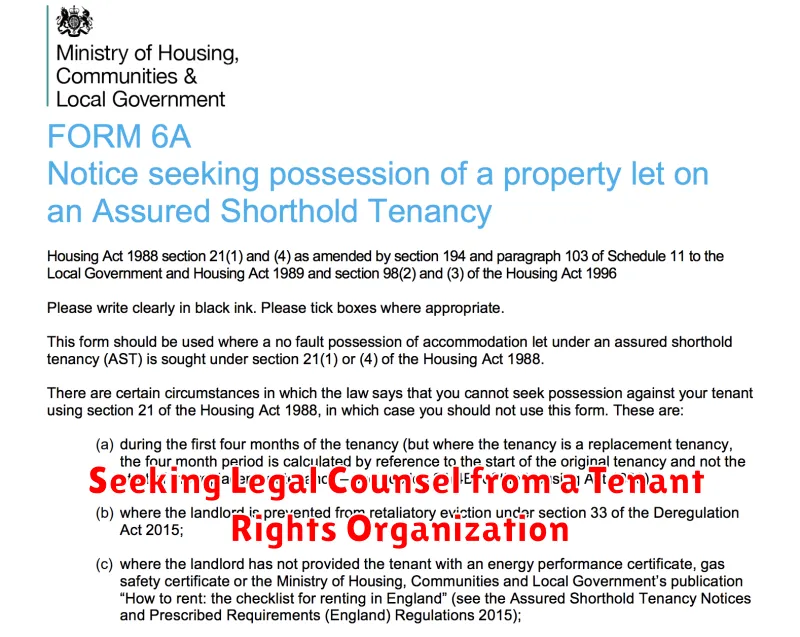
If you are facing eviction, it is crucial to seek legal advice from a tenant rights organization. These organizations are dedicated to protecting the rights of tenants and can provide valuable guidance and support. They can help you understand your legal rights and options, negotiate with your landlord, and represent you in court if necessary.
Tenant rights organizations can provide a range of services, including:
- Legal advice: They can answer your questions about your rights and responsibilities as a tenant.
- Mediation: They can help you negotiate a settlement with your landlord.
- Representation in court: They can represent you in court if you are facing eviction.
- Information and resources: They can provide you with information about your rights and resources available to you.
To find a tenant rights organization in your area, you can search online, contact your local legal aid society, or ask for referrals from friends or family.
Seeking legal counsel from a tenant rights organization can be a valuable asset in protecting your rights and avoiding eviction. They are experts in tenant law and can help you navigate the complex legal system.
Negotiating a Payment Plan or Move-Out Agreement
If you’re facing eviction, it’s important to try and negotiate a payment plan or move-out agreement with your landlord. This can help you avoid a negative mark on your rental history and potentially save your belongings. Here are some tips:
Be proactive: Don’t wait for your landlord to contact you. Reach out to them as soon as you know you’ll have trouble paying rent. Explain your situation and express your willingness to work with them.
Be realistic: Don’t expect your landlord to forgive all of your debt. Be prepared to offer a realistic payment plan that you can afford.
Get it in writing: Once you agree on a payment plan or move-out agreement, make sure to get it in writing. This will protect you both.
Be polite and respectful: Even if you’re frustrated, it’s important to maintain a professional tone. Being polite and respectful will increase your chances of reaching a successful agreement.
If you’re unable to reach an agreement with your landlord, you may need to seek legal assistance. A lawyer can advise you on your rights and help you negotiate a fair agreement.
Gathering Necessary Documentation and Evidence
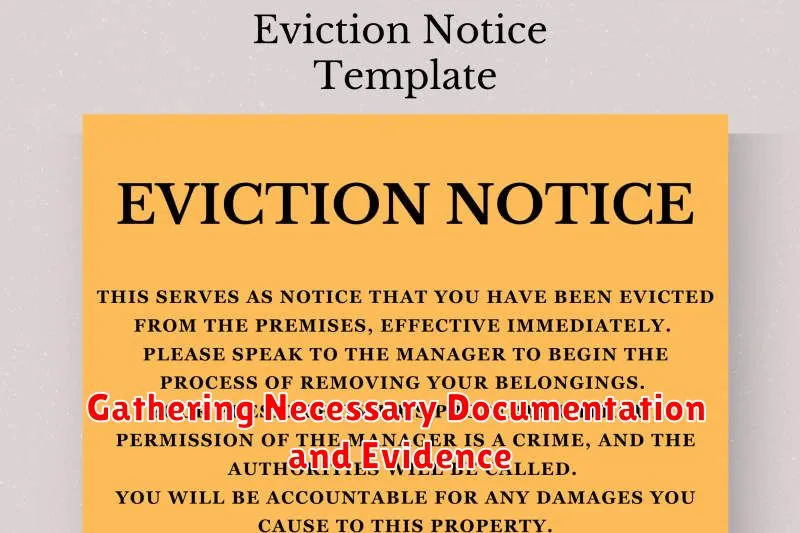
Getting evicted is a stressful experience, and it’s important to stay organized during this time. Gathering the right documentation can protect your rights and help you address any wrongful eviction. Here’s what to do:
1. Keep all communication: Save every email, text message, or letter, including eviction notices and rent receipts. This will help you build a record of interactions with your landlord.
2. Document all repairs requests: If you reported issues with the apartment that were never fixed, document everything you can. This may include maintenance requests, photos of the problem, and communication with your landlord.
3. Save copies of your lease agreement: The lease is a legally binding contract that outlines the rights and responsibilities of both you and your landlord. Ensure you have a copy of the complete lease agreement.
4. Gather evidence of your rent payments: If you have a history of paying rent on time, this can be helpful. Gather bank statements, receipts, or other proof of payment.
5. Understand your local laws: Research your state or city’s eviction laws to learn your legal rights and what your landlord can and cannot do.
6. Consider contacting a legal professional: If you’re facing eviction and feel unsure about your rights, it’s best to consult with a lawyer specializing in tenant-landlord disputes. They can help you understand your legal options and navigate the eviction process.
By gathering necessary documentation and evidence, you can strengthen your case and protect your rights during the eviction process.
Preparing for the Eviction Hearing (if applicable)
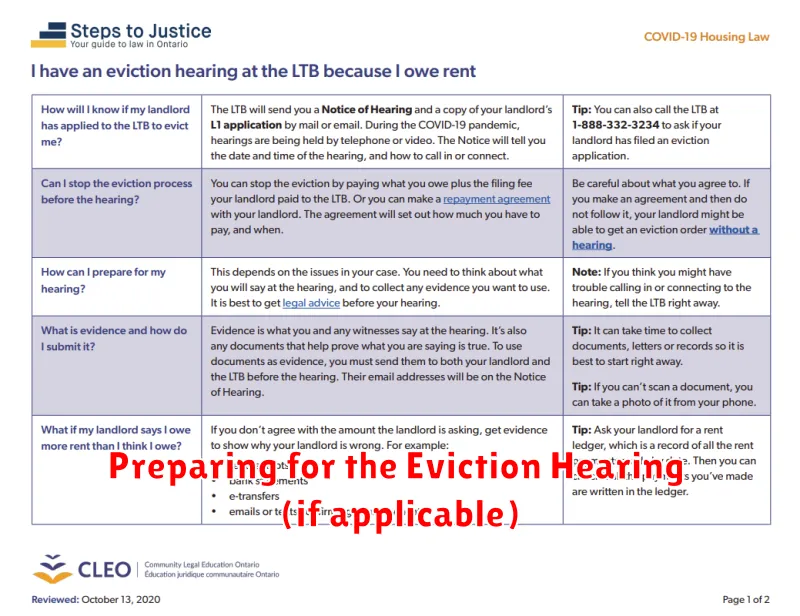
If you’re facing eviction, you’ll likely have a hearing in court. It’s crucial to prepare thoroughly for this hearing. You’ll need to understand the eviction process in your state and gather any evidence that supports your case.
Here are some key steps:
- Review the court documents: Understand the specific allegations made against you.
- Gather evidence: This could include copies of your lease agreement, payment records, or communication with your landlord.
- Contact a lawyer: Legal representation is essential. An attorney can advise you on your rights and help you present your case effectively.
- Attend the hearing: Be punctual, dress appropriately, and be respectful of the court.
- Present your case: Explain your side of the story and provide evidence to support your claims.
Remember, an eviction hearing is a serious matter. Proper preparation is key to increasing your chances of a favorable outcome.
Finding Temporary Housing and Support Resources
Getting evicted is a stressful and overwhelming experience. You’ll need to find a new place to live quickly, and you may be facing financial challenges. Here are some resources to help:
Shelters: If you’re facing homelessness, the first step is to find a shelter. Shelters provide temporary housing and basic needs, such as food and clothing. Contact your local homeless services organization to find a shelter in your area.
Temporary Housing Programs: There are also a variety of temporary housing programs available. These programs may provide housing for a short period of time, such as a few weeks or months, while you work to find a permanent solution. Contact your local housing authority or social services agency for information about temporary housing programs.
Financial Assistance: You may be eligible for financial assistance to help you pay for rent or security deposits. Contact your local social services agency or a nonprofit organization that provides financial assistance to learn about your options.
Legal Aid: If you believe the eviction was illegal or unfair, you may be able to get legal help. Contact your local legal aid society or a private attorney who specializes in eviction defense.
Support Groups: Joining a support group for people who have experienced eviction can help you connect with others who understand what you’re going through. These groups can provide emotional support and practical advice. Your local social services agency or a religious organization may offer support groups for those facing eviction.
Remember, you’re not alone. There are resources available to help you through this difficult time. Don’t hesitate to reach out for help.
Understanding Your Rights After an Eviction
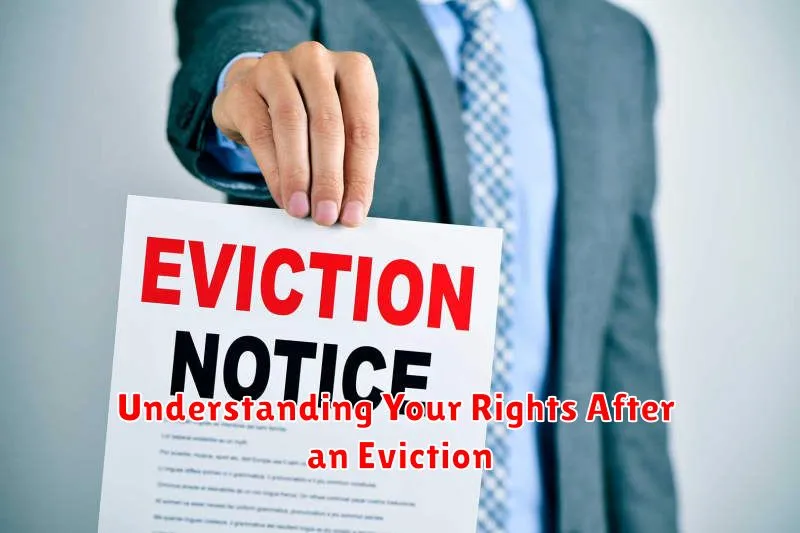
Being evicted from your apartment can be a stressful and overwhelming experience. However, it is crucial to understand your rights during and after the eviction process. Knowing your legal rights will help you navigate the situation effectively and take appropriate actions to protect yourself.
Eviction Laws Vary: Eviction laws can vary widely depending on your state or locality. It’s important to research the specific laws in your area to fully understand your rights and the eviction process. Consult with a legal professional or a local tenant advocacy organization for accurate and up-to-date information.
Unlawful Eviction: If you believe the eviction was unlawful or your landlord violated your rights, it’s important to seek legal advice immediately. You may have grounds to challenge the eviction in court or seek compensation for damages.
Right to a Hearing: In most jurisdictions, you have the right to a hearing before a judge to contest the eviction. During this hearing, you can present evidence and argue why the eviction should not be carried out.
Property Removal: After an eviction, you generally have a limited time to remove your belongings from the property. This time frame varies by state. If you’re unable to remove your belongings within the allotted period, your landlord may have the right to dispose of them.
Eviction Record: An eviction can negatively impact your future housing prospects. It may be difficult to secure an apartment in the future if you have an eviction record. It’s important to understand how eviction records are maintained in your jurisdiction and what options may be available to you.
Tenant Rights Organizations: There are various tenant rights organizations that can provide support and guidance during an eviction. These organizations can offer legal advice, help you navigate the eviction process, and provide referrals to other resources.
It’s important to note that this information is intended for general knowledge and should not be considered legal advice. If you are facing an eviction, consulting with an attorney or a tenant advocacy organization is crucial to ensure your rights are protected.
Preventing Future Evictions: Learning from the Experience
Getting evicted can be a devastating experience. It can impact your credit score, make it difficult to find future housing, and cause financial stress. However, it is important to remember that eviction can often be prevented by learning from the experience and taking steps to avoid it in the future.
First, it’s crucial to understand the reason for the eviction. Was it due to non-payment of rent, violation of lease terms, or other factors? Once you know the reason, you can work towards addressing it. If it was due to non-payment, try to create a budget and stick to it to ensure you can pay your rent on time in the future. If it was due to a lease violation, ensure you understand the terms of your lease and comply with them moving forward.
Secondly, build a good relationship with your landlord. Communicate openly and respectfully. If you’re having trouble paying rent, reach out to them as soon as possible to discuss possible solutions. Open communication can often prevent a situation from escalating.
Lastly, consider seeking assistance from organizations that help prevent eviction. There are numerous resources available, such as legal aid societies and tenant advocacy groups, that can offer advice and support. They can help you understand your rights, navigate the legal process, and work towards a solution.
Remember, getting evicted can be a difficult experience, but it’s not the end. By learning from the experience, taking responsibility for your actions, and seeking help when needed, you can prevent it from happening again.

